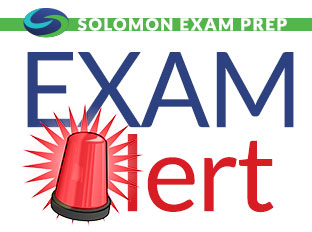Under the Dodd-Frank Act, the SEC and CFTC (Commodity Futures Trading Commission) regulate the OTC swaps market. On April 18, 2012, the SEC adopted rules that provide definitions for terms used in the law, specifying who will be subject to regulation. Continue reading
Under the Dodd-Frank Act, the SEC and CFTC (Commodity Futures Trading Commission) regulate the OTC swaps market. On April 18, 2012, the SEC adopted rules that provide definitions for terms used in the law, specifying who will be subject to regulation.
The rules provide two categories of persons subject to SEC registration: “security-based swap dealers” and “major security-based swap participants.” In essence, a security-based dealer is a person that regularly trades security-based swaps for their own account. A de minimis exemption exists for dealers who traded up to $3 billion worth of credit default swaps over the past year and up to $150 million worth of other security-based swaps. Note that there is a different de minimis threshold of $25 million for security-based swaps involving “special entities,” including certain government agencies.
A major security-based swap participant is a person who maintains a “substantial position” in any of the major security-based swap categories, or whose outstanding security-based swaps create “substantial counterparty exposure.” Note that hedging positions are not counted towards the “substantial position” threshold if the person is not a “highly leveraged financial entity,” meaning a financial entity with a ratio of liabilities to equity in excess of 12-to-1. Two tests are provided for determining “substantial position,” and two thresholds are provided for “substantial counterparty exposure.” The specifics of these tests and thresholds may be found in the SEC release, along with background information, a plan to phase-in the de minimis rule, a safe harbor to avoid being considered a major participant, and other details.
The rule will become effective 60 days after publication in the Federal Register, though the deadline for registration will be given in SEC’s final rules for registration of dealers and major participants.
Source: SEC Release 2012-67
This exam alert applies to the Series 62, Series 79, Series 99, Series 65, and Series 66.
 Effective June 26, 2015, FINRA will alter its rules regarding who will be considered a public or non-public arbitrator. The change will make it so that any arbitrator who has worked in the financial industry for any period of time will be considered a non-public arbitrator. Also, arbitrators who represent investors or the financial industry as a significant part of their business will be considered non-public arbitrators, but may become public arbitrators after a cooling-off period. The cooling-off period lasts five years if they were disqualified from being a public arbitrator based on their own actions. The cooling-off period lasts two years if they were disqualified from being a public arbitrator based on someone else’s actions.
Effective June 26, 2015, FINRA will alter its rules regarding who will be considered a public or non-public arbitrator. The change will make it so that any arbitrator who has worked in the financial industry for any period of time will be considered a non-public arbitrator. Also, arbitrators who represent investors or the financial industry as a significant part of their business will be considered non-public arbitrators, but may become public arbitrators after a cooling-off period. The cooling-off period lasts five years if they were disqualified from being a public arbitrator based on their own actions. The cooling-off period lasts two years if they were disqualified from being a public arbitrator based on someone else’s actions.